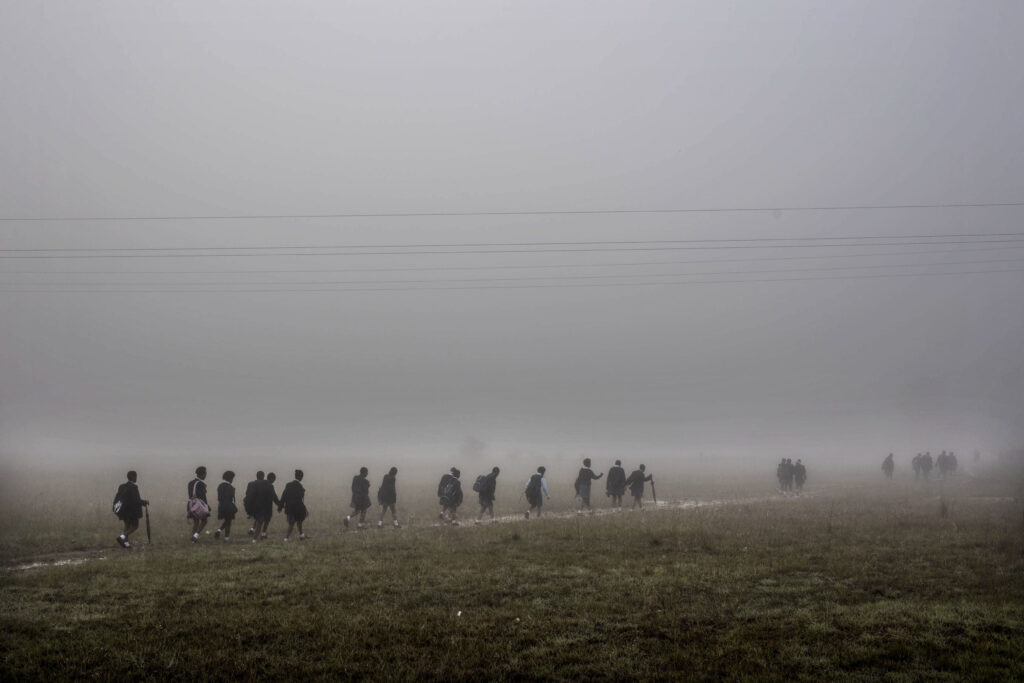Humble: Ngwako Sebopetša, the principal of Rathaga Primary School, says his award belongs to all those he has worked with
South Africa’s Ngwako Stephen Sebopetša, the principal of Rathaga Primary School near Tzaneen in Limpopo was recently named the winner of the 2021 Global Principals’ award.
Sebopetša was selected as the best principal out of 200 000 entries from 110 countries on six continents and was recognised for “excellent leadership acumen, winner’s spirit, significant work and contribution” in the field of education.
Messages of congratulations from dignitaries and institutions, including from the presidency, the Modjadji Royal House in Bolobedu, the South African Council for Educators and the University of Cape Town’s vice-chancellor, Mamokgethi Phakeng, poured in.
Sebopetša, who happens to be my former neighbour, says: “I feel honoured, truly humbled, and overwhelmed. I never thought I would one day get calls from all corners of the world, it feels unreal. This award is not mine alone, it belongs to everyone I worked with along the way.”
The school principal, who is from Sekhimini village in Ha-Modjadji, Limpopo, points to his father Gilbert Sebopetša, who was also a school principal, as the motivational force behind his taking up a career in education.
After completing his grade 12 at Bokgaga Secondary School, Sebopetša enrolled at the Modjadji College of Education. He also holds a doctorate in education from the University of Venda and is pursuing a law degree through Unisa.
“My father was a consummate professional who taught me all about education and work ethic. In a time when literacy levels among black people were extremely low, he helped the wives and families of migrant workers read letters from their estranged loved ones. He was also an evangelist, philanthropist and social activist. Some villagers would come to him for marital advice,” he says with a wry smile.
The apple clearly did not fall far from the tree because, like his father, Sebopetša is a charitable man who opened his door to the needy and shares his wealth of knowledge with everyone. If you passed by his house early enough on Saturday mornings, you would spot him warming up his small bakkie, clad in the conventional attire of a principal and holding a huge diary in his hand.
As a teenager I soon learnt that when someone in our neighbourhood had scored a job interview, Sebopetša was the go-to person for tips and guidance.
He preached education even in his own household. I attended the local primary school with his daughter, Makoma Sebopetša, who is now a medical doctor. I remember “Nkomi”, as a diligent learner who excelled both inside and outside of the classroom and credited her academic achievements to her father’s involvement and monitoring.
Accolades for outstanding contribution in the education sector are nothing new to this principal. In 2012 he was named second runner-up at the National Teaching Awards, an initiative by the department of education, for excellence in primary school leadership.
He says his journey has not always been smooth sailing. Bolobedu is one of the marginalised cultural and language minorities in South Africa and he laments that working in a rural environment is not without its difficulties. “Co-operation from parents in rural areas is still a problem, some are not educated while others are labourers in the cities and therefore absent,” he says.
“Underdevelopment makes it difficult to see the value of education. The remaining few parents who take part in school governing body activities misinterpret the purpose and function of the structure, making education a challenging field to work in.”
Because I was educated in these rural schools, I experienced first hand some of these harsh realities. I witnessed many people fall a year behind in school because they had to care for their sickly parents, herd livestock or had become pregnant.
I remember a learner who drowned trying to cross a flooded river to get to school.
We sometimes made use of trees and shacks as makeshift classrooms, and shared buildings with neighbouring schools because ours were overcrowded.
Inadequate roads and infrastructure prevented our teachers from attending syllabus workshops, and also delayed the delivery of textbooks.
All of these factors had a negative effect on the quality of education we received but we persevered because of teachers like Ngwako Sebopetša, who always went the extra mile.
Both his master’s and doctoral theses focus on the role of the principal in resuscitating the culture of teaching and learning.
He says he is concerned about the new intake of educators, who seem unenthusiastic about the profession. He adds that the education system has not kept abreast with the rest of the world in responding to the needs of modern society and blames this for the high number of underperforming schools, particularly in rural areas.
“I advocate for a unitary education system in South Africa and think that we need less politics and more practical policy implementation. We could learn from countries like China, whose curricula reform included a systematic unification of educational institutions.”
 Role model: Seabela Maila, who wrote this article, said learners persevere despite obstacles because of teachers like Ngwako Sebopetša, who went the extra mile. Photo: Paul Botes
Role model: Seabela Maila, who wrote this article, said learners persevere despite obstacles because of teachers like Ngwako Sebopetša, who went the extra mile. Photo: Paul Botes
Despite these obstacles, Sebopetša says he is hopeful for the future of education in South Africa.
He said his winning the Global Principals’ award would not have been possible had it not been for the unwavering support from his wife Constance, their four children as well as the people who welcomed his innovative ideas in cultivating a culture of learning and teaching in rural schools.